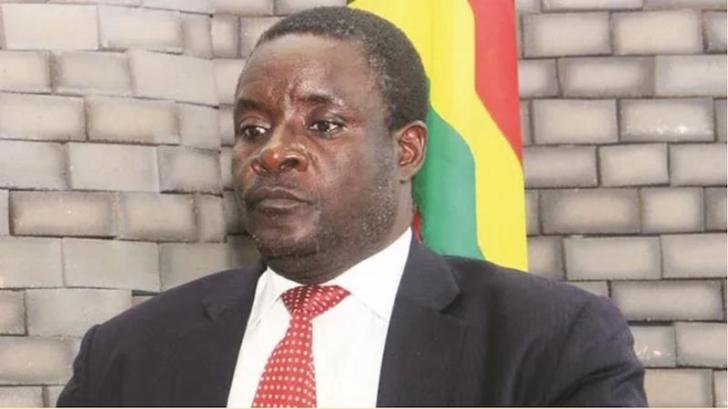News / National
Mnangagwa's spin doctor admits public hospital crisis
18 Jun 2025 at 06:31hrs |
21 Views

Presidential spokesperson George Charamba has openly acknowledged the crumbling state of Zimbabwe's public hospitals, pointing to decaying infrastructure, poor policy coordination, and overwhelming system pressure as key challenges plaguing the nation's health sector.
Charamba made the remarks following President Emmerson Mnangagwa's rare visit on Monday to the country's largest referral hospitals - Parirenyatwa Group of Hospitals and Sally Mugabe Central Hospital - in the wake of mounting public outcry over dire conditions in state-run medical institutions.
"Our role as Presidential staffers was to note areas requiring immediate, medium and long-term interventions, and they were just too many, in order to help shape effective health delivery policy," Charamba said in a statement posted on his X (formerly Twitter) account.
He described a public health system that is overloaded and disjointed, crippled by a lack of investment at lower levels of care such as municipal and district clinics, which has created a knock-on effect at referral hospitals now stretched far beyond capacity.
"It was clear from the visit that the whole health delivery hierarchy needed attention. Failures at basic primary levels like clinics and district hospitals transmitted themselves all the way to referral hospitals, leading to a system which is creaking from an overload, disrepair and fresh investments," he said.
Zimbabwe's public health institutions have long struggled with dilapidated infrastructure, chronic drug shortages, understaffing, and poor remuneration, pushing many skilled healthcare workers to emigrate and patients to seek treatment in the private sector or abroad.
Charamba said the President personally witnessed stark examples of neglect, including the Mbuya Nehanda Maternity Wing at Parirenyatwa operating without curtains or heating - severely compromising patient dignity, privacy, and comfort. He added that many wards lacked blankets, while broken windows further exposed patients to the elements.
"Interventions have got to be systemic," Charamba stressed, noting that the mushrooming of elite private medical centres was symptomatic of a failing public system that no longer meets the needs of the majority.
He also blamed inefficiencies across key government departments, saying the Ministries of Finance, Local Government, and Health must urgently take a more active and coordinated approach to addressing the crisis.
While the visit signals a growing recognition at the highest levels of government of the deteriorating health sector, it remains unclear what concrete actions will follow to halt the continued decline of public healthcare - a sector seen by many Zimbabweans as emblematic of the broader collapse of public services.
Charamba made the remarks following President Emmerson Mnangagwa's rare visit on Monday to the country's largest referral hospitals - Parirenyatwa Group of Hospitals and Sally Mugabe Central Hospital - in the wake of mounting public outcry over dire conditions in state-run medical institutions.
"Our role as Presidential staffers was to note areas requiring immediate, medium and long-term interventions, and they were just too many, in order to help shape effective health delivery policy," Charamba said in a statement posted on his X (formerly Twitter) account.
He described a public health system that is overloaded and disjointed, crippled by a lack of investment at lower levels of care such as municipal and district clinics, which has created a knock-on effect at referral hospitals now stretched far beyond capacity.
"It was clear from the visit that the whole health delivery hierarchy needed attention. Failures at basic primary levels like clinics and district hospitals transmitted themselves all the way to referral hospitals, leading to a system which is creaking from an overload, disrepair and fresh investments," he said.
Charamba said the President personally witnessed stark examples of neglect, including the Mbuya Nehanda Maternity Wing at Parirenyatwa operating without curtains or heating - severely compromising patient dignity, privacy, and comfort. He added that many wards lacked blankets, while broken windows further exposed patients to the elements.
"Interventions have got to be systemic," Charamba stressed, noting that the mushrooming of elite private medical centres was symptomatic of a failing public system that no longer meets the needs of the majority.
He also blamed inefficiencies across key government departments, saying the Ministries of Finance, Local Government, and Health must urgently take a more active and coordinated approach to addressing the crisis.
While the visit signals a growing recognition at the highest levels of government of the deteriorating health sector, it remains unclear what concrete actions will follow to halt the continued decline of public healthcare - a sector seen by many Zimbabweans as emblematic of the broader collapse of public services.
Source - NewZimbabwe
Join the discussion
Loading comments…



























